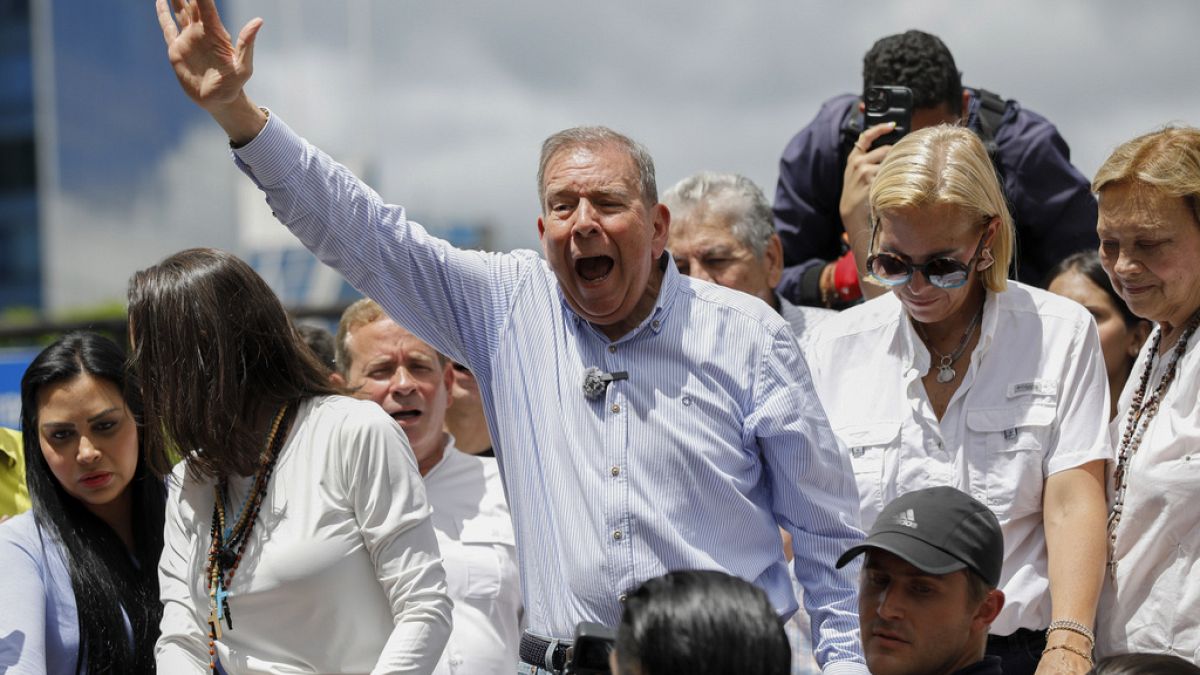The arrest warrant issued for former Venezuelan opposition presidential candidate Edmundo González has raised concerns about the validity of July’s election results. González, who allegedly won by a significant margin in the elections, has been accused of various crimes including conspiracy, document forgery, and power usurpation. The warrant came after electoral authorities declared President Nicolás Maduro the winner of a third six-year term in office, despite the release of voting records by opposition leader María Corina Machado suggesting otherwise. The European Union has called for the release of all electoral records to ensure transparency.
The controversy surrounding the election results revolves around the publication of voting records, which were not made public by the National Electoral Council. Despite the existence of electronic voting machines that record and transmit votes, the Council failed to release the results recorded by the machines, citing a supposed hacking of their website. Machado took matters into her own hands by posting the records online, revealing that González had received more votes than reported by the government. This revelation sparked international pressure for a detailed breakdown of the results.
In response to the mounting pressure, President Maduro requested that the Supreme Court audit the electoral process. However, critics argue that the court is too closely aligned with the government to conduct an independent review. The court ultimately ruled that the results released by the opposition were false and confirmed Maduro’s victory. The ruling United Socialist Party of Venezuela refused to publish its copies of the voting records, further deepening suspicions of electoral fraud.
González, representing the opposition coalition Unitary Platform, was summoned to the prosecutor’s office for questioning, a move condemned by Machado as a violation of due process guarantees. She accused Attorney General Tarek William Saab, a close ally of Maduro, of being a “political accuser” who prejudged the case. In response to the summons, González refused to appear for the interview, citing lack of specificity in the request among other reasons. The arrest warrant issued against González is seen as a suppressive measure against the opposition movement in Venezuela.
The arrest warrant issued against González has sparked outrage and condemnation from opposition politicians and supporters in Venezuela and abroad. María Corina Machado, a prominent opposition leader, criticized the Maduro regime for its actions, asserting that the warrant only strengthens the resolve of the opposition movement. She emphasized the unity of Venezuelans and democracies around the world in their quest for freedom and justice. The international community continues to monitor the situation in Venezuela closely, calling for transparency and fair electoral practices in the country.
Overall, the arrest warrant issued against former opposition presidential candidate Edmundo González highlights the ongoing political turmoil in Venezuela. The controversy surrounding the election results and the subsequent suppression of opposition voices raise concerns about democracy and human rights in the country. The lack of transparency in the electoral process and the refusal to publish voting records have led to widespread skepticism about the legitimacy of President Maduro’s victory. As Venezuela grapples with political uncertainty and economic challenges, the international community stands firm in its support for democratic principles and the rights of the Venezuelan people.











